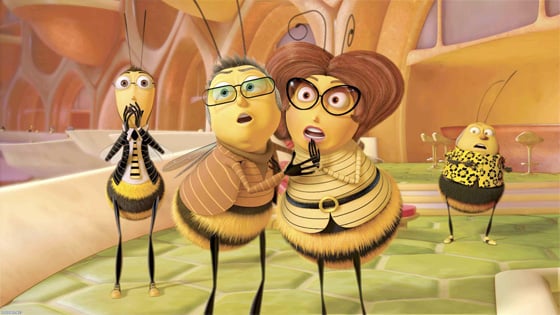This article is more than 1 year old
Official: phones sting bees
Set them to buzz
Britain's honeybee population is in decline and some scientists now believe the blame lies with mobile phones.
Bee expert Dr Daniel Favre was able to monitor the effects of mobile phone radiation on bees by placing his handset under a hive. When the phone was making and receiving calls, the bees responded with high pitched "worker piping" - a sign they are about to swarm. Within minutes of the call ending, the bees had calmed down again.
Humans, when woken at 7am by roadworks right outside their home, will probably act in a similar manner. Perhaps bees are just more impatient with their disturbances.
Previous experiments have shown that bees alter their behaviour after even the tiniest of changes in the local geomagnetic field intensity. When a mobile phone is kept near a beehive, the colony collapses within five to ten days, leaving just queens, eggs and hive-bound immature bees.

Ring, ring
The phenomenon apparently accounts for 43 per cent of all bee losses, with overwintering (39 per cent) and mite disease (15 per cent) some of the other perceived causes. Pesticides, which have long been considered a major catalyst in bee decline, only account for three per cent of loss.
Download the full report here: Mobile phone-induced honeybee worker piping. ®
